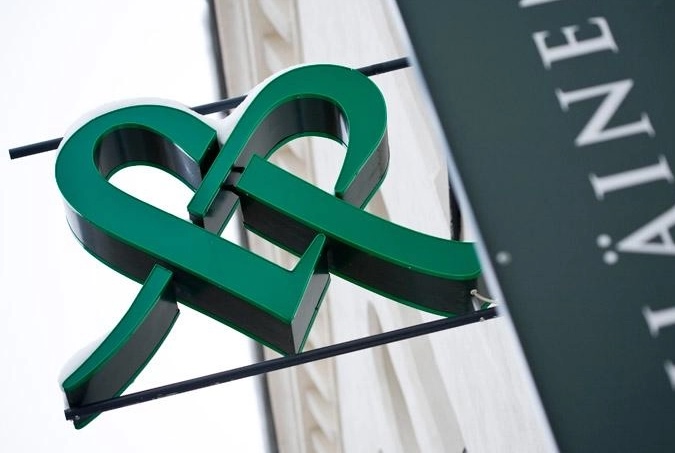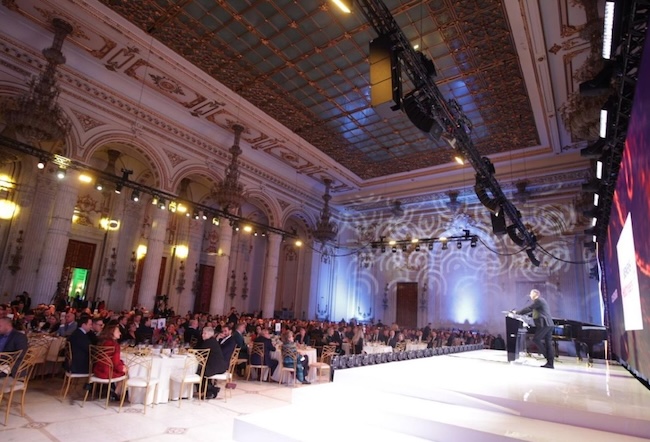The consultancy market for companies specialized in attracting non-reimbursable funds exceeded EUR 50 mln. in 2020

The top five largest companies and the group of companies specialized in consultancy services to attract European funds and state aid experienced a fast-track increase in financial performance during 2020, also marking developments of more than 190% of businesses, especially due to the increase in demand for non-reimbursable funds, a study by REI Finance Advisors, one of Romania's most dynamic companies in the field, shows.
According to the data published by the Ministry of Finance, the total value of the business for the five largest companies and groups specialized in consultancy for attracting European funds and state aid, whose turnover exceeded 500.000 euros in 2020, amounted to over 7.5 million euros, more than 60% up from around EUR4.6 million in 2019.
The biggest rise in turnover was recorded by REI International Consulting, with almost a triple business, from around 335,000 euros in 2019 to over 970,000 euros in 2020, while the second performance in the ranking was checked by the REI Finance Advisors, also part of the REI Grup, with a turnover of about 460,000 euros in 2020, compared to around 165,000 euros in 2019.
The main funding axes which increased the revenues of the consultancy companies in 2020
- Measure 2 - Working capital grants (OGA 130/2020)
The Ministry of Economy, Entrepreneurship and Tourism manages the State aid scheme set up by OGA No 130 of 31 July 2020 concerning measures for granting financial support from non-repayable external funds under the Operational Program competitiveness 2014-2020, in the context of the crisis caused by COVID-19.
According to official data, at the beginning of June 2021, around 226 applications were processed out of a total of 22,226 applications for financing, out of which 8,195 contracts have already been paid by the Ministry of Economy.
- GD 807/2014 – maximum 50% funding for investment projects of minimum EUR 1 million
The scheme grants 10% non-reimbursable financing for projects implemented in Bucharest, 35% - Ilfov and the West of the country ( Arad, Caras-Severin, Hunedoara and Timis counties) and 50% non-reimbursable financing in the rest of the country.
Eligible for funding are both start-ups, owned by shareholders who are no longer involved in other companies operating in the same field, SMEs or large companies, with thousands of employees. The condition would be that the applicants had a profit in at least one of the last 3 years of activity. The list of eligible expenditure includes new investments, the construction of buildings from scratch, the extension of existing buildings or a simple acquisition of equipment leading to the diversification of the company’s products, the increase in capacity or the change in technology flow. It shall not be possible to renovate buildings or purchase existing buildings. More details about this scheme can be accessed here.
- GD 495/2014
The applicants eligible for funding under the 495/2014 scheme are companies in sectors at risk of loss of competitiveness due to the financing of support for renewable energy, a risk due to the electro-intensity of the beneficiary and exposure to international trade. More details on GD 495/2014 can be found here.
- OGA 81/2019
The State aid is granted to companies specializing in the production of aluminum, mining of minerals for the chemical and fertilizer industries, manufacture of other inorganic chemicals, production of lead, zinc and tin, manufacture of leather clothes, production of basic ferrous metals and ferro-alloys, including seamless steel pipes, paper and paperboard manufacture, fertilizer and nitrogenous products manufacture, copper production, other basic organic chemicals, cotton spinning, man-made fibers manufacture, iron ore mining and the manufacture of polyethylene, polypropylene, polyvinyl chloride, polycarbonate and mechanical pulp.
- POR 2.2 - Grants between 200,000 euro - 1 million euro
The Regional Operational Program 2014-2020 has as its main objective to increase economic competitiveness by supporting the development of the business environment, infrastructure and services. It comprises 11 priority axes, POR 2.2 being the second axis, of major importance in particular because it aims to improve the competitiveness of SMEs – a sector that has a significant impact on the competitiveness of regional economies.The grants offered range from €200,000 to €1 million. More details can be found here.
The consultancy market, affected by uncertainties concerning the projects submitted by Measure 2 and Measure 3
The REI consultants team once again warns of the uncertainties and bottlenecks affecting the two state funding programs, through measure 2 - grants for working capital and measure 3 - grants for investments, Part of a package of measures aimed at economic recovery for the companies affected during the pandemic period.
"The consultancy market will be seriously affected if the full amount of the Measure 2 money is not paid and Measure 3 is canceled, with some 30 million euros, especially since no European call has been opened in the first 6 months of the year. It is only in the next period that we expect the financing for HoReCa to be opened, as well as the axes dedicated to the rural environment, especially in agriculture", said Roxana Mircea.
About 3,500 companies that are part of the "green list" for non-reimbursable financing, out of a total of 27,000, that applied for financial support through Measure 3 supporting investments in Romania, a project announced by the Romanian Government during 2020, and which have met all the conditions to receive the funds from the State, would have created more than 10,000 new jobs and would have paid fees of EUR 300 million only with their remuneration for a period of five years, while their investments would have exceeded 1 billion euros, authorities are considering the complete cancellation of their financing.
Under Measure 3 - Investment grants, with more than 27,736 applications, companies should have received grants ranging from 50,000 to 200,000 euros for development projects, but an alleged fraud brought before the Romanian Ministry of Economy, Entrepreneurship and Tourism, but not yet proven, as well as the lack of funds required to pay the HoReCa Scheme - Measure 2, the financing of the projects was blocked, even if they met, for some 3,500 companies, the eligibility criteria in full.






